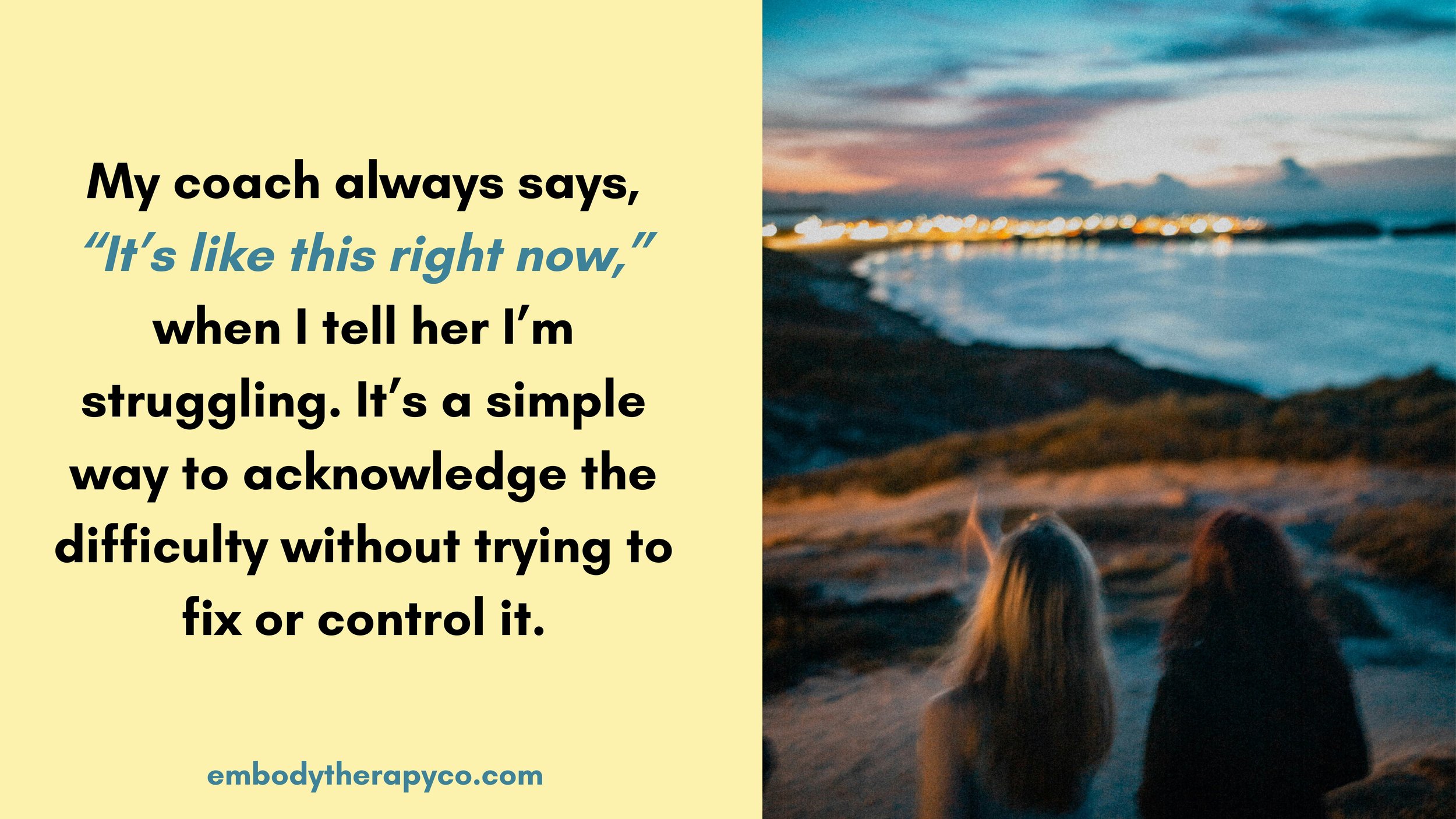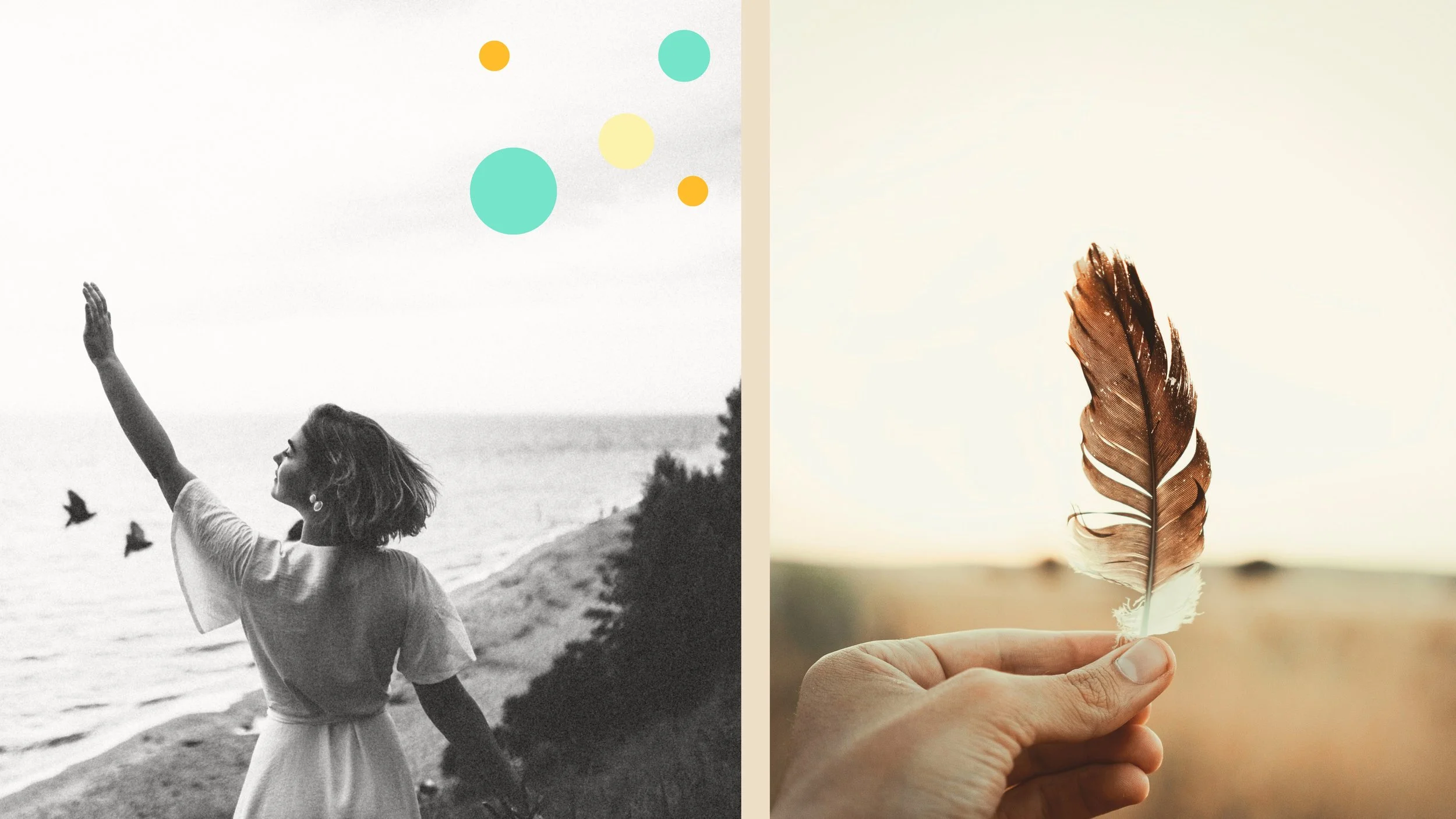18 questions to recover a sense of embodied possibility this March
Are you struggling with your mental health? Right now, it feels like I’m in the winter season of my life. The same hardships keep showing up. I know they are here to teach me, but for once, can I get a day with no life lessons? Today, I’m exploring 18 questions to recover a sense of embodied possibility this Spring. [27.2.25.]
What season of your life are you in?
Have you ever heard the question, “What season of life are you in?” I used to find it annoying—how can one season sum up everything? Maybe some parts of your life are blooming like summer, while others are changing like autumn.
Writers often use seasons to describe the different stages of life. Spring represents new beginnings, Summer represents growth, Autumn represents change, and Winter represents overcoming struggles.
Right now, it seems I am in the Winter season of my life. I know Spring is just around the corner because today I went outside, and the sun shone on my face (in what felt like the first time in ages), and it was like a little prayer had been answered.
And yet, when I go through struggles, I naturally expect something else to go wrong. It’s as if my body is in fight or flight mode.
Positive advice like “look for the silver linings” isn’t always helpful. Sometimes, we just need to know we’re not alone and that our pain matters. Am I moving towards something meaningful?
Society expects us to always be in the “Summer” season of our lives, but that’s not realistic.
True happiness and growth take inner work—self-awareness, reflection, healing, forgiveness, maturity, and faith in something bigger than ourselves.
When I get too self-pitying and question why I have to struggle, I know that “me” is really “we.”
It’s not about me because there are other mothers, workers, and women suffering silently too. I am a tiny thread in the tapestry of humanity. This is what gives me perspective.
Depression or deep rest?
Have you heard the phrase “depression or deep rest”?
Sometimes, depression is really just deep rest—our mind and body needing to slow down. When I’m anxious, my thoughts race like a hamster on a wheel, trying to find control and quick answers.
But life doesn’t always have easy answers. We learn through failure, even when it’s uncomfortable. I just want to avoid the messy parts, but unfortunately, we have to make mistakes to learn and do things in a better way.
Also, when we’re overthinking, anxious or worried, we feel a lot of unprocessed emotions. We get disconnected from our bodies, becoming numb to heavy emotions. It’s common to get stuck in cycles of negative thinking.
Depression is complex, but there’s truth in deep rest. When I get depressed, I know I need to pause, reflect, and find my way back to myself.
In a fast-paced world where we’re always trying to keep up, I think we long for silence and peace.
When depressed thoughts hit me, I start to listen to myself more, giving myself space to breathe and stretch my body. It’s a way to let go of stress, moving at my own pace.
Embodied listening: Accepting it’s hard without trying to fix it
It’s easy to get lost in feelings or resist what doesn’t work, but accepting “it’s like this right now” actually lightens the load.
It’s ok to feel mixed emotions without ignoring them. Hearing “it’s like this right now” helps me move forward without being overwhelmed. Some moments are just hard, and no positivity can fix them. What’s needed is acceptance rather than resistance.
There are always small ways to make things better, like watching a favourite TV show to self-soothe. Guilty pleasures and comfort bring me back to myself too.
Embodied possibility: The spark of hope
Today, even with a scattered mind, I know I can feel hope and possibility in my body.
It’s being grounded in the present, accepting my emotions, and rising above them. It’s channelling my energy toward positive outcomes, keeping that spark of hope alive in my soul (even, or especially, in dark times).
It’s releasing perfection and taking small, messy steps forward. It’s not pushing myself to do more but being pulled by hope.Embodied possibility is getting out of my head and into my heart. It’s welcoming myself back home and growing self-belief (even if it’s shaky and wobbly at first).
It’s taking self-authorship of my own story without relying on outside validation.
It’s asking myself, “What do I know to be true?” and trusting my instincts.
Here are some questions for added hope this March. Begin to set realistic goals, leaning into mindful productivity. Start to embody possibility, and let creativity unfold.
How can I stay grounded when I feel overwhelmed?
Focus on the physical sensations of grounding, like feeling your feet on the floor or taking a deep, intentional breath.
What is the difference between “busy” and “mindfully productive” in my body?
Observe your sensations when busy or mindfully productive. How do they differ in terms of tension, energy, and relaxation?
How can you trust the process (not the result) more?
What helps you stay open, focused on creativity, and letting your work unfold naturally?
How does my breath feel when I’m anxious?
Experiment with breathing slowly and deeply when anxious. How does this improve?
What happens (in my body) when I let go of control?
How does it feel to release control and allow things to unfold?
When I get distracted, what can I do to refocus?
Notice if your self-talk is negative, and start to use more supportive and kind words.
What does being 1% better feel like in my body?
Notice any changes - maybe you let your body stand tall, your feet rooted to the earth, and you look up.
What am I avoiding, and what is my body telling me about it?
Tune in to your body’s responses when you think of avoidance. Does your chest tighten? Does your breath shorten?
Can I do something familiar in a new, more creative way?
Explore ways to do something a little differently to add a sense of novelty.
When I feel sad or depressed, what do I notice in my body language?
Pay attention to the physical cues your body sends when you get down. How can you expand your body slightly to shift states?
How can I embrace uncertainty and still feel safe in my body?
Practice grounding yourself when faced with uncertainty. Where do you feel secure in your body, even when you don’t have all the answers?
What does a "confident" version of me look like in my body?
Stand or sit in a posture that feels strong and confident. What shifts in your body when you imagine yourself in a bold confident way?
What emotions am I repressing, and where do I feel them in my body?
Explore areas of tension or numbness in your body. Is there a particular emotion or memory you are holding onto there?
What’s one thing you’ve done recently that made you feel light and free?
What brings you a sense of flow and ease?
What does playfulness mean for you? How do you feel this in your body?
Brainstorm all the easy things you can do to bring playfulness into your day.
How can I welcome discomfort and change in a nurturing way?
Sit with discomfort for a few minutes. How can you make space for it without judgment? What does it feel like?
How can I add joy, fun or novelty into my day?
Can you revisit past hobbies, music or activities that bring more colour into your day?
What can I release today to create more flow in my life?
Explore the areas in your life or body where you feel stagnant. What can you let go of, whether physical or mental?















